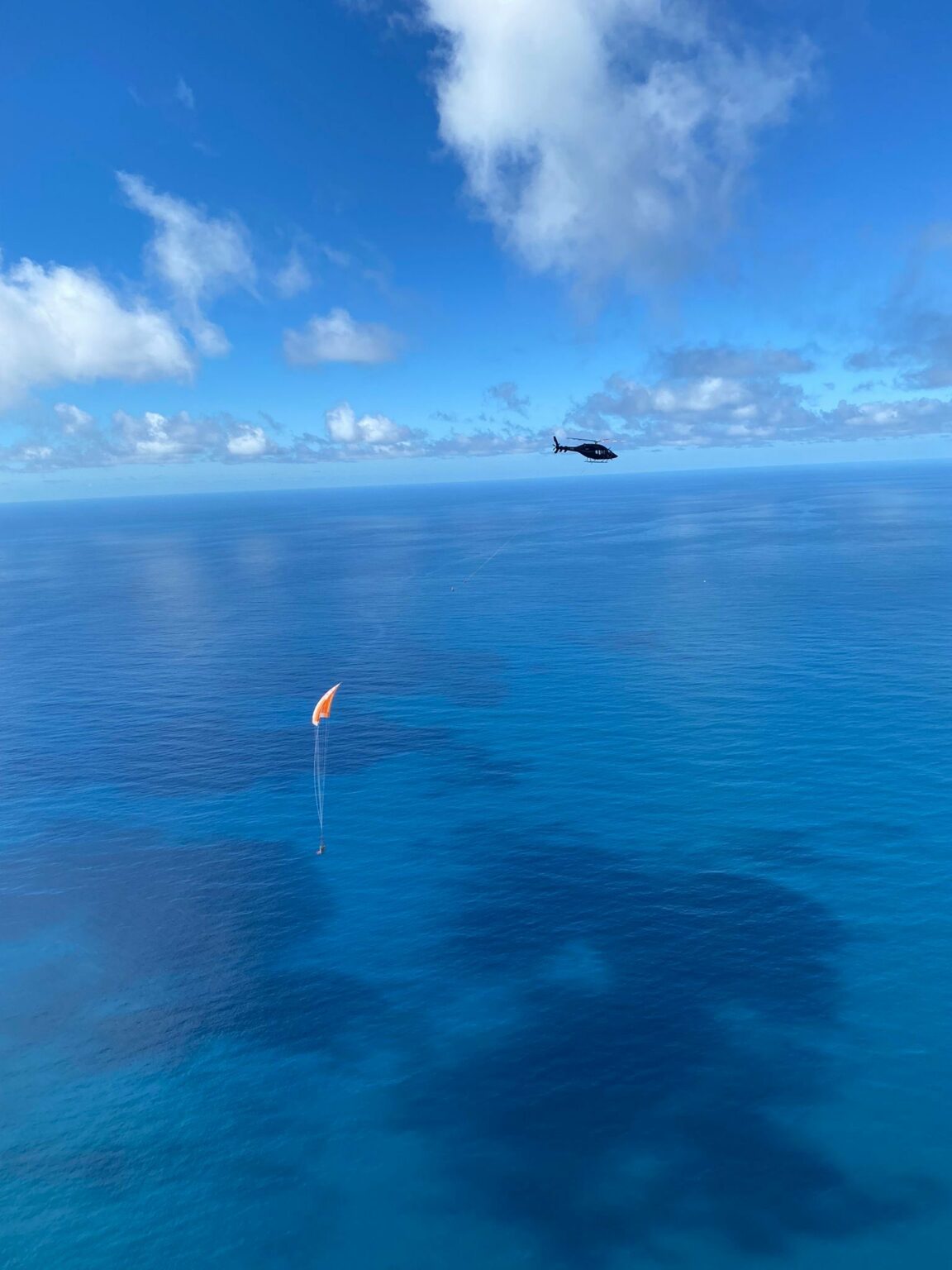Rocket Lab has announced its readiness to attempt the return of the first stage of the Electron rocket. It will take place during the next mission, scheduled for the second half of April.

Unlike SpaceX, which uses a jet landing to return the stages of its rockets, Rocket Lab specialists have chosen a different approach. During the descent by parachute, the Electron stage will be picked up by a helicopter, and then delivered to land. This will completely eliminate contact with seawater, which will greatly facilitate the preparation of an expensive component for the next launch. Such a scheme is possible because Electron is a small carrier and the mass of its first stage without fuel is only one ton.
In preparation for the operation, Rocket Lab successfully landed on water the first Electron stage several times. These tests demonstrated the effectiveness of the parachute system, as well as the reliability of thermal protection. In addition, the company has worked out the procedure of air pick-up using the stage layout.
A modified Sikorsky S-92 helicopter will be used to “catch” the stage. About an hour before the start, it will take a position in the Electron descent zone, located about 260 km from the coast of New Zealand. If everything goes well, the helicopter crew will catch the parachute of the stage with a special hook and take it to land. After that, Rocket Lab engineers will conduct a thorough analysis of it and assess its suitability for re-flight.

An attempt to return the first stage will be made during the There and Back Again mission. Within its framework, Electron will launch 34 satellites from various commercial customers into Earth orbit. The fourteen-day launch window for the mission will open on April 19.
According to https://www.businesswire.com
Follow us on Twitter to get the most interesting space news in time
https://twitter.com/ust_magazine
